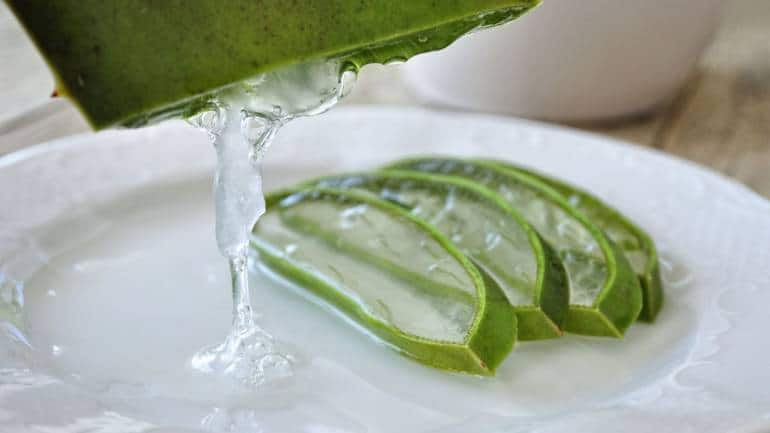



Have you noticed your skin becoming excessively dry, rough, and scaly? Do you experience itching, redness, or cracks on your skin's surface, especially in areas exposed to the sun? These could be signs of xeroderma.
Dry skin, scientifically referred to as xeroderma, is a condition that causes roughness, flaking and scaling of skin. Neglecting this condition can potentially lead to skin infections. The etiology of xeroderma is diverse and includes factors such as taking prolonged, hot showers and the use of harsh soaps. Environmental conditions like extreme cold weather and intense sunlight exposure can also contribute to xeroderma. Irritants found in household and hairdressing chemicals can harm sensitive skin.
Eczema treatment: Cure it with a good eczema cream, cold compress and coconut oil
Dermatologic conditions such as contact dermatitis, eczema, psoriasis, scabies, and bacterial or fungal infections can lead to skin roughness and flaking. Moreover, systemic issues like diabetes mellitus, hypertension, renal failure, and thyroid problems are known to play a role in the development of xeroderma.
Factors contributing to dry skin include:Hormonal changes: Dry skin may appear during pregnancy and menopause due to hormonal fluctuations.
Scalp psoriasis causes, symptoms and cure: This one is a real head-scratcher
Obsessive-compulsive disorders: People with obsessive-compulsive disorders that compel excessive skin washing may experience dryness.
Eating disorders and substance use: Those with conditions like anorexia nervosa or those who consume alcohol or drugs may be susceptible to dry skin.
 How to cure xeroderma: Coconut oil is a safe and effective measure to improve skin hydration. It also helps in increasing the number of lipids on the skin surface (Image: Canva)
How to cure xeroderma: Coconut oil is a safe and effective measure to improve skin hydration. It also helps in increasing the number of lipids on the skin surface (Image: Canva)Inflammatory conditions: Inflammatory conditions like Crohn's disease and ulcerative colitis have also been associated with dry skin.
Medication side effects: Certain medications, such as diuretics, contraceptives, and lipid-lowering agents, can also lead to dry skin as a side effect.
Got skin problems after rains? Here’s a list of fruits that enhance your skin health
These factors lead to a reduction in the skin's natural moisturising mechanisms, including a decrease in lipid levels. Dry skin results from deficiencies in essential moisturising elements such as sugars, amino acids, and lactic acid, as well as issues within the stratum corneum, the outermost layer of the skin.
 How to cure xeroderma: A frequently used home remedy for skin problems, aloe vera gel can be used during dry or cold weather to help treat redness and irritation caused by xeroderma. It can even remedy acne breakouts
How to cure xeroderma: A frequently used home remedy for skin problems, aloe vera gel can be used during dry or cold weather to help treat redness and irritation caused by xeroderma. It can even remedy acne breakoutsHere are some home remedies you can consider to address xeroderma or dry skin:
Coconut oil: A popularly used oil that helps treat dry skin, coconut oil is a safe and effective measure to improve skin hydration. It also helps in increasing the number of lipids on the skin surface. Additionally, it serves as an emollient, moisturising and smoothing the skin. Applying a layer of coconut oil on the feet and covering it with gloves overnight can work on chapped heels.
Milk: Including milk in your diet can help enhance the texture. The fat component in milk (phospholipid) promotes healthy skin and prevents roughness and dryness. It may aid in restoring hydration, thanks to its natural anti-inflammatory properties attributed to the presence of lactic acid, a moisturising agent, while also assisting in the removal of dead skin cells.
Oatmeal: Create an easy exfoliating mask by combining 2 tablespoons of this mixture with 1 tablespoon of honey and a little water. Leave it on for 10-15 minutes to help moisturise the skin. Alternatively, some prefer a soothing oatmeal bath to help remove irritation, inflammation, and conditions like atopic and contact dermatitis.
Aloe Vera: Another frequently used home remedy for skin problems, aloe vera gel can be used during dry or cold weather. It helps treat redness and irritation caused by xeroderma and can even remedy acne breakouts. It's essential to perform a small patch test to prevent potential allergic reactions.
General measures: Adopting general practices such as using lukewarm water, mild cleansers, and soaps with a pH akin to the skin can help in the prevention of dry skin. Regularly applying skin moisturisers, employing room humidifiers, and maintaining adequate fluid intake are also recommended.
Discover the latest Business News, Sensex, and Nifty updates. Obtain Personal Finance insights, tax queries, and expert opinions on Moneycontrol or download the Moneycontrol App to stay updated!
Find the best of Al News in one place, specially curated for you every weekend.
Stay on top of the latest tech trends and biggest startup news.